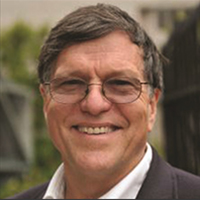Arnold B. Scheibel, M.D.
Distinguished Professor of Neurobiology, Psychiatry, and Biobehavioral Sciences and former Director of the Brain Research Institute at the University of California, Los Angeles (UCLA).An internationally recognized expert in the area of neuroanatomy with focus on substrates of consciousness and higher cognitive functions, aging, and central nervous system (CNS) disorders, such as Alzheimer’s disease (AD) and schizophrenia.Dr. Scheibel is a two-time Guggenheim Fellow and a member of the American Academy of Arts and Sciences, the Royal Norwegian Academy of Sciences, and the American Psychiatric Association.
Gary S. Lynch, Ph.D.
Professor, Departments of Psychiatry and Human Behavior, and Anatomy and Neurobiology at the University of California, Irvine (UCI). Dr. Lynch is a world renownedexpert in the field of mechanisms of synaptic plasticity and cellular and molecular deficits underlying cognitive impairment and neuronal vulnerability in brain aging and neurodegeneration, such as in AD.
Richard F. Thompson, Ph.D.
Keck Professor of Psychology and Biological Sciences and Senior Scientific Advisor to the Program in Neural, Informational and Behavioral Sciences at the University of Southern California (USC). A world renowned expert in delineating the basic neurobiological substrates of learning and memory, Dr. Thompson is member of the National Academy of Sciences, the American Academy of Arts and Sciences, the American Philosophical Society, and the Society of Experimental Psychologists.
Frank M. LaFerla, Ph.D.
Co-Director of the Institute for Brain Aging and Dementia and a Professor in the Department of Neurobiology and Behavior at the University of California, Irvine (UCI). In recent years, Dr. LaFerla has been at the forefront of AD research and has made a number of significant strides in understanding the molecular pathogenesis of the disease. He and other members of his team were the first group in the world to create a genetically altered mouse (i.e., 3xTg-AD) that allowed for the concurrent study of the two hallmark lesions associated with AD, namely, plaques and tangles
Charles G. Glabe, Ph.D.
Professor, Department of Molecular Biology and Biochemistry, School of Biological Sciences at the University of California, Irvine (UCI). Dr. Glabe has published key work on the relationship between amyloid structure and the mechanism of amyloid pathogenesis in degenerative diseases. This discovery indicates that amyloids share a common structure that is implicated in a common mechanism of pathogenesis. In addition to key papers on the structure of amyloids, Dr. Glabe has published extensively on the mechanisms of amyloid accumulation in AD.





